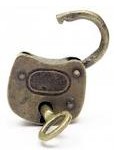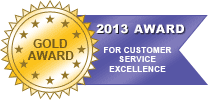 Hopefully most of you are peace-loving people. Though there are some that seek to hurt you for whatever their reasons may be…
Hopefully most of you are peace-loving people. Though there are some that seek to hurt you for whatever their reasons may be…
Similarly to how dangerous germs attempt to gain entry into our vital life-support systems, computer viruses try to enter your system and lay waste to its’ well being. Your Internet Service provider (ISP) probably expresses suggestions as to how to protect your computer.
Searching for second opinions is wise. Quests for the truth can be a headache. So sit back and pop an aspirin… A study by the FBI suggests that $12 million is lost by businesses every year because of viruses.
Your ISP most likely wishes you to use either:
- McAfee,
- Norton, or
- Kaspersky
Out of those three we suggest the last one. Though many are opting for ESET NOD32 Antivirus due to its’ massively smaller size yet comparable effectiveness. Also a strong following has sprung up in favor of AVG.
How do these programs combat security breaches?
Three main methods come into play when keeping malware at bay:
- Programs can be compared to a database of code known to be up to no good – a dictionary of demons.
- To combat attacks with no precedent, ‘heuristics’ are employed, they look for traits of malicious activity – like a PI sniffing for clues.
- To run programs within a virtual environment and then monitor for undesirable actions.
What can I do?
Very much the same sort of things that keep you safe, happy, and healthy in the real world.
- Stay clean – virtually this refers to regularly scanning for bugs (weekly is reasonable) – and defrag‘ every now and then.
- If you have many different passwords, consider a program like LastPass that takes care of them all under the control of your own master key.
- Create a safe space for your most valuable information. An encrypted partition can be part of, or an entire disk/USB. TrueCrypt is the program that will allow you to do this.
- Don’t forget to watch your mouth. Hackers don’t need to resort to technology if they can simply extract the necessary information with the right conversation under false pretenses.
It is a myth that Mac computers cannot contract a virus.
It is also true that…

- You should switch to using either: Google Chrome, Mozilla Firefox, Safari, or Opera. If for whatever reason you’re unwilling to pry yourself from using Internet Explorer then, at least, make sure to have upgraded to its’ latest version. Internet Explorer is possibly the worst way to browse the internet. Microsoft’s indigenous web-browser is notoriously penetrable.
- NEVER open e-mail attachments unless absolutely sure of their safety. The same caution should be observed when visiting suspicious sites, downloading files online, and even inserting USB’s or disks to your computer.
- No defense is impenetrable and it is this fact that spurs the continuance of arms races. Even the pentagon has been hacked before. It is another reason many renowned experts in the field of security software also have histories as hackers and criminals. It takes a thief to catch a thief.
One way to improve your chances of keeping your computer clean is to stay educated on the topic of security. There are many useful sites dedicated to broadcasting such news and information. Remember to always wear a seat belt and drive safe!










8 Responses to How to keep your files virus free